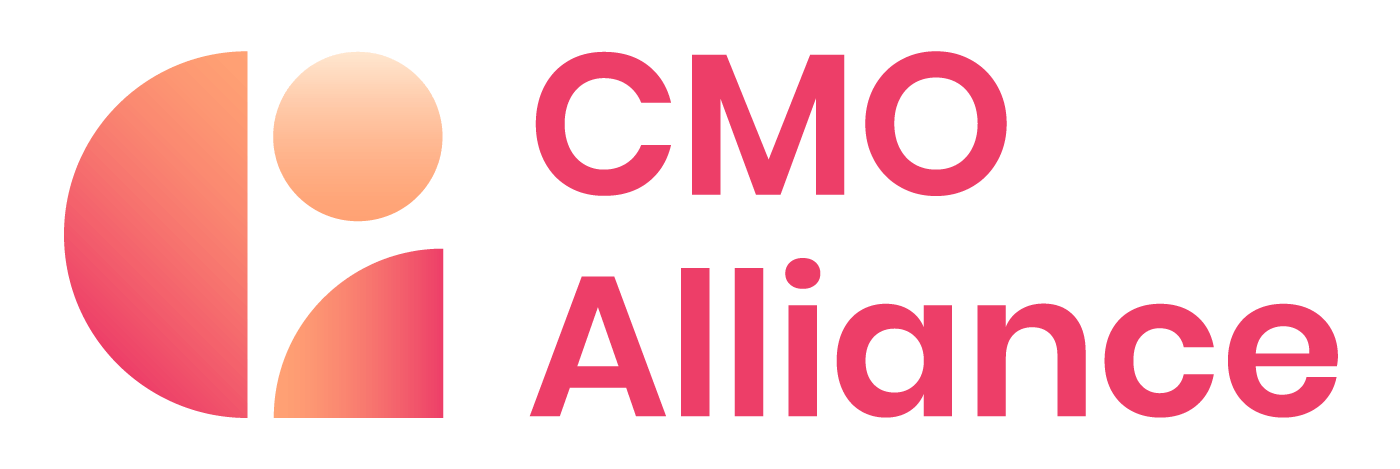In today's job market, it can be difficult for companies to assess their perfect marketing candidate. Title inflation, mass layoffs at blue chip companies, and a period of easy growth have made it more difficult to accurately assess candidates' skills and experience.
One approach you can use to assess fit is to incorporate a project – sometimes called a thought exercise, prompt, etc. – into your hiring process. But mention such an ask to any candidate for a senior marketing role, and you’ll get complaints ranging from projects just being free work, reinforcing biases, or a waste of time for both the company and the candidate.
In this article, I'll share my experience based on both giving and receiving, projects as part of the hiring process to outline:
- The benefits of incorporating a project into your hiring
- How to structure a project to make it a good experience for the company AND the candidate
- How to address candidate concerns that they're being asked to do work for free
Let's get started!

What are the benefits of incorporating a project?
The addition of a project to the standard interview process allows you to evaluate and compare candidates' abilities on a common task – and not just on what candidates say they’ve done in past jobs.
Building a project into your hiring helps:
- Shift the conversation from what a candidate HAS done to what they CAN do
- Reduce interviewer bias by giving all finalists the ability to demonstrate their ability, logic, and insights in solving the same problem
- Create a shared platform for you and the candidate to have a conversation about how they work and think about marketing
To make sure you achieve these benefits, you have to carefully plan the project you are going to give candidates. You can’t treat this as an afterthought that you spring on candidates late in the process. I’ll talk about this more in the best practices section below, but I believe you get the most value out of a project when you approach it as a vehicle for a conversation, and not as having "right" or "wrong" answers. If you don’t position the project as a conversation, I can guarantee candidates will feel like you’re asking them to do free work.
When candidates are concerned about doing "free work"
Including a project in your hiring process can be a great opportunity for employers and candidates to assess each other. They can also be a quick way to alienate candidates and damage your employer brand if you're not careful.
Here are my best practices for making sure all parties feel comfortable and informed:
Be upfront about including a project
If you're including a project in a hiring loop, tell candidates from the beginning. No one likes surprises. Once you’ve passed that initial screening conversation, let them know where in the process you might have a project, and more importantly, why you're including one.
Make the project part of your core hiring process
Projects shouldn't be an afterthought. If you're using one, be sure to position the project as equal value to the interviews or reference checks. Make sure candidates understand this is an opportunity for them to show their unique POV and talents in action.
Only give projects to finalists
Projects are a time commitment for both sides, so don't use them early in the process just to gauge interest. You should only give projects to candidates you would probably have hired in an interview-only process. You should view a project as a means to either: 1) confirm the feedback from the interviews, 2) break an existing tie between candidates.
Set clear expectations on the purpose of the project
I repeatedly stress that a marketing project is a vehicle for a conversation, not a deliverable. I want candidates to understand that it's not about the pixel-perfect quality of any assets they create, but the quality of their thinking -- and the ability to communicate that -- that I'm most interested in.
Let the candidate define the deliverable
To make sure candidates feel some control of the process, I believe they should define how they deliver their work. If you specify the deliverable as well as the task, you're asking them for free work. I make sure candidates know they can choose any format – a presentation, written doc, bulleted email, interpretative dance – whatever they feel best enables them to communicate their approach. (The "how" a candidate presents their thinking will also tell you a lot about them. And no, sadly, I haven't had anyone take me up on the interpretative dance approach… yet.)
I know some employers provide some form of compensation for completing projects – ranging from cash payments to Starbucks cards. I haven't found the need to compensate candidates if you set appropriate expectations and frame the project appropriately.
(And, of course, if you do want candidates to do actual work, why not compensate them for their time? If the candidates are as good as you think they are, you could get some valuable work done and they’ll feel good about the value exchange.)
Best practices for framing a hiring project
Developing an effective scenario for a marketing project is as much art as science. Having incorporated projects into my hiring for more than a decade, here are some of my best practices:
1. Provide the candidates with a written creative brief
If you can't articulate the project and expectations in a short 1-2 page brief, the task either hasn't been defined enough or the project is too complex for a hiring project. Revise and refine your brief to the point that you'd be comfortable turning it over to an agency or freelancer to execute a paid project.
I never send candidates 30-page slide decks or volumes of background docs. Slides are meant to be presented, and candidates can lose too many details included in the talk track. Sending TOO many background docs can make it feel like you are having the candidates do free work.
My project briefs include:
- A short synopsis or background of the business situation – Give some context on why the issue you're asking them to look at is relevant and important.
- An audience overview – Identify who the target for this marketing effort is, what we want them to do, and any high-level insights we have about them.
- Business objectives we're trying to achieve – Let them know the outcomes marketing should be driving. If you're at all concerned about a candidate's ability to drive business value, seeing how they connect their project work to these business objectives will be invaluable.
- Restate the project guardrails in the brief – Make sure to reiterate expectations for the candidate in terms of output, timing, how they'll be presenting their findings, etc. Even if you’ve told them verbally, you don’t want anything lost in translations. And always, always make sure to offer to answer any follow-up questions the candidate has throughout the process – you’ll learn a lot from the questions they either do or don’t ask.
2. Avoid specific initiatives your company is working on today
While the project needs to be relevant, don't give candidates work they feel you would benefit from directly. Instead, tailor your projects to broader or hypothetical initiatives. For example, how would you structure a demand gen program to drive leads in a new segment? How would you evaluate the effectiveness of our current email campaigns? How would you develop a product launch strategy with a particular focus on sales enablement?
That said, I don't believe in giving people completely made-up scenarios such as launching a new line of taco trucks or selling real estate on Mars. While candidates can roll with these wacky scenarios, I find that the interviewing team has difficulty connecting with the scenario and the quality of the resulting conversation suffers.
3. Avoid projects that require access to specific tools/platforms or proprietary data
If your project requires either tools or data, be prepared to provide those to the candidate. But again, if you start loading the candidate with real-world data and tools, it's going to feel like free work, so be judicious about what you provide.
4. Give enough time, but not too much
I generally give candidates 7-10 days to make sure they have enough time to balance other priorities and feel like they can do good work. I don’t want to provide too much time, otherwise, they’ll spend too much time trying to make it “perfect” and stress out. Remember: you've been communicating that the project is coming, so it shouldn't be a surprise, and your brief should be focused enough that the candidate doesn't feel like they have to spend hours spinning their wheels on what to do.
5. Prep your interview panel on expectations and their role
It's as important to prep your internal team on what to expect from the project, as it is to prep the candidate. I like to have candidates presented to a panel of people from sales, product, marketing, etc and it's my responsibility to make sure those interviewers know why they're involved.
I want the interviewers to understand they need to be an active participant in the conversation, and that they should suspend disbelief in any candidate recommendations "we've tried before." Instead, the focus should be on the candidate’s recommendations and the thinking that went into them.
6. Don't expect final files from the candidate
A surefire way to look like you've been angling for free work is to demand the candidate to send their final assets. Don't undermine your prep work on making this a valuable moment by requiring candidates to give you their work. Unless you're paying them, they own their IP and can decide if they want to share this with you or not.
7. Provide feedback
This should be a given, but it’s surprising how many hiring managers don’t provide feedback on the project itself. If you ask candidates to work on your project, you have to commit to giving them feedback – in addition to any feedback on the discussion. No one wants to put the effort into a project, and not get feedback on how their ideas landed. If you ask for a project, you owe it to the candidate to give them feedback.

Incorporating project-based interviewing into your hiring
Now that I've shared how and why you should use projects in your hiring, I will admit: I hate receiving these tasks myself.
As a senior marketer, I'm not alone. I recently polled a community of CMOs about projects they had been given and received a flood of horror stories.
Let's be clear: they didn't disagree with the potential value of projects, but many had disastrous experiences and therefore did not feel like they should be used for senior hires.
Digging into their experiences, the common thread from the negative experiences was that the projects weren’t designed or overseen by a marketer.
When you’re hiring for your top marketer, the development of an interview project is often written by whoever thinks they know marketing – a CEO, CRO, or even a board member. The challenge is these folks have experienced marketing but through the lens of their own operational experience. This can lead to violating the best practices we just discussed for hiring projects.
How do you reduce the possibility of running a project when hiring your senior-most marketer?
- Decide if a project will really help your decision-making. Projects tend to showcase skills and thinking, not necessarily experience and team leadership. If you don't need help assessing marketing skills, don't add a project.
- Get feedback from experts. If you want to use a project, circulate your brief with marketers to see if it makes sense to them. Even if you don’t currently have a CMO, it’s likely you know marketers -- or can get access to some -- through your advisors, VCs, or even vendors. Use them to sanity-check what you’re asking the candidate to work on.
- Leverage your executive recruiter to design the hiring process. You’re likely using an executive recruiter for a senior hire, and they've seen the good, the bad, and the ugly of interview processes. Engage your recruiter to not only develop your brief but to help make sure it fits into your overall hiring process.
Projects can be incredibly valuable; you just have to invest the time and effort into making it a valuable experience. I believe incorporating these best practices in your projects will enable qualified candidates to show off what they can do, without making it feel like you're abusing them.
Best of luck with your hiring.
Are you having success with project-based hiring? Got any alternatives you'd like to share? Connect with a global network of CMOS and marketing leaders on the CMO Alliance Community Slack channel for all the advice sharing you need. And it's free to sign up!




